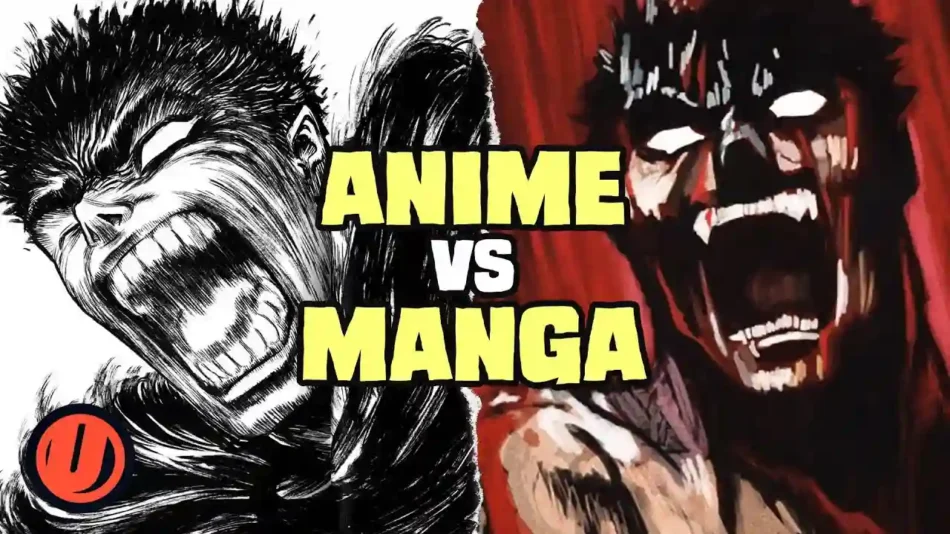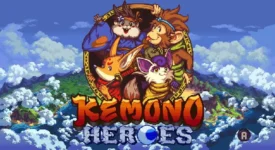Kentaro Miura’s “Berserk” is known for its dark and brutal narrative, filled with violence, betrayal, and supernatural horrors. However, beneath the grim surface of the story lies a profound exploration of love in its various forms. Love in “Berserk” is not limited to romantic affection but extends to friendship, camaraderie, and the enduring bonds that connect the characters in a world plagued by darkness. In this article, we will delve into the ways “Berserk” explores the theme of love amidst the darkest of circumstances.
Companionship and Friendship
At the heart of “Berserk” is the bond between the series’ two central characters, Guts and Griffith. Their relationship evolves from camaraderie on the battlefield to a deep and complex friendship. Guts initially joins the Band of the Hawk, led by Griffith, out of necessity and a desire for purpose. However, over time, their connection deepens, and Guts becomes Griffith’s most trusted and loyal follower.
The love between Guts and Griffith is not romantic, but it is profound in its own right. It represents a deep camaraderie and mutual respect that transcends the boundaries of traditional friendship. Guts is willing to risk his life for Griffith, and Griffith, in turn, sees Guts as an indispensable part of his life.
Betrayal and Sacrifice
One of the most emotionally charged and tragic moments in “Berserk” revolves around Griffith’s betrayal of Guts. Driven by his ambition and a desire for his own kingdom, Griffith sacrifices his comrades and closest friend to achieve his dream. This betrayal leads to a profound rupture in their relationship and sets the stage for the series’ central conflict.
The theme of betrayal and sacrifice underscores the complexity of love in “Berserk.” It highlights the dark side of ambition and the lengths to which individuals may go in pursuit of their goals. Griffith’s betrayal of Guts is a painful reminder of how love and loyalty can be twisted by personal ambition, ultimately leading to heartbreak and tragedy.
The Bond Between Guts and Casca
As Guts’ journey continues, he forms a deep and complicated relationship with Casca, a female warrior within the Band of the Hawk. Their connection evolves from initial antagonism to mutual respect and, ultimately, love. Guts and Casca’s love story is one of the most poignant and enduring aspects of “Berserk.”
Casca serves as a symbol of hope and healing for Guts, who has endured a lifetime of trauma and violence. Her presence provides him with a sense of belonging and purpose, and their love becomes a source of solace amidst the darkness of their world. Guts’ unwavering commitment to protect and care for Casca showcases the redemptive power of love, even in the bleakest of circumstances.
The Struggles of Love
Despite the depth of their love, Guts and Casca’s relationship is fraught with challenges and obstacles. Casca’s traumatic experiences, including sexual assault and psychological trauma, create barriers to their intimacy. Guts, on the other hand, struggles with his own inner demons and the relentless pursuit of revenge.
The portrayal of love in “Berserk” is not idealized but rather grounded in the complexities of human emotions and relationships. Miura’s narrative explores the sacrifices and compromises that individuals must make when faced with adversity. Guts and Casca’s love is tested repeatedly, yet their determination to protect and support one another highlights the resilience of love in the face of overwhelming darkness.
The Unbreakable Bonds of Comradeship
While the love between Guts and Casca is a central focus of the narrative, “Berserk” also highlights the importance of the bonds forged between comrades in arms. The Band of the Hawk, under Griffith’s leadership, represents a family of warriors who share a deep sense of camaraderie and loyalty.
The camaraderie within the Band of the Hawk is a testament to the power of love in its broader sense. These characters come from different backgrounds and carry their own traumas, yet they find a sense of belonging and purpose within the group. Their love for one another is evident in their willingness to fight and sacrifice for the sake of their comrades.
The theme of camaraderie and the bonds between warriors is a recurring motif in many war narratives and is particularly resonant in “Berserk.” It highlights the idea that love can be found not only in romantic relationships but also in the friendships and connections formed through shared experiences and trials.
The Healing Power of Love
As “Berserk” progresses, the theme of love takes on a redemptive quality. Despite the unrelenting darkness of the world and the horrors that the characters face, moments of tenderness and love provide a glimmer of hope and humanity.
The character of Rickert, a member of the Band of the Hawk, experiences moments of kindness and love amidst the chaos. These moments serve as a contrast to the brutality of the world and emphasize the healing power of love. Rickert’s journey underscores the idea that even in the bleakest of circumstances, love can offer a sense of solace and a reason to continue fighting.
Conclusion
“Berserk’s” exploration of love amidst darkness is a testament to the depth and complexity of Kentaro Miura’s storytelling. The manga portrays love in its various forms, from friendship and camaraderie to romantic and redemptive love. It acknowledges the challenges and sacrifices that love entails while also highlighting its capacity to provide hope and healing in the most desperate of situations.
Ultimately, “Berserk” underscores the idea that love is a powerful and enduring force that can transcend the darkest of circumstances. It is a theme that resonates deeply with readers, reminding us of the importance of connection, compassion, and the enduring strength of the human spirit, even in the face of overwhelming darkness.








